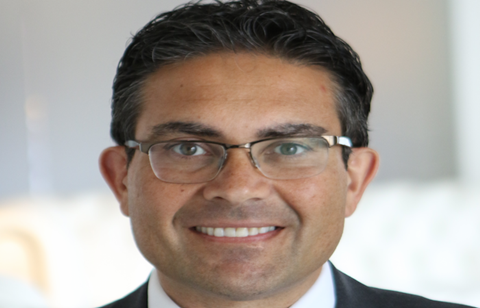
Growing old is as natural as being young. Yet, while most businesses have policies to support their employees’ childcare arrangements, eldercare is ambiguous or completely overlooked.
Two-thirds of British adults believe organisations should redress this imbalance, giving eldercare the same support as childcare receives, according to the Simplyhealth/YouGov Everyday health tracker research, published in September 2017. The survey shows similar demand for flexible working (65%), as well as unpaid leave (51%) and paid leave (35%) to help care for ageing relatives. Respondents say they would also like to see counselling and support groups for carers, along with eldercare vouchers and tax-free care credits.
Of course, the latter calls for government aid, and this may seem fitting when 42% of people think the government should take most responsibility for the care of our ageing population.
Yet, in the last seven years, government budgets have fallen by more than £6 billion, according to the 2017 Budget survey published by the Association of Directors of Adult Services in June 2017, and we are told the social care system is near to collapse. So who should help workers care for their ageing parents? Could it be businesses? After all, employers give staff a hand with their nursery fees and the afternoon off when sports day comes around. Is it not the same thing?
Well, yes and no. Eldercare is arguably more worthy. The emotional strain of caring for an elderly parent whose health is getting worse is quite different from that of looking after an infant. What is more, given there is no baby bump equivalent to show for their efforts, carers of ageing parents often keep their care lives quiet. This can lead to feelings of isolation in the workplace (71% of working carers admit to this), which can spiral into stress, depression, sickness and absenteeism; all bad for business. At the same time, it means this increasingly important matter is being kept under wraps, making it hard for non-carer colleagues to relate to the issue and fuelling a fear to speak out.
Some employers may claim to deal with eldercare under the remit of flexible working or compassionate leave. But, until adult care is given the specific recognition it deserves, many workers will be afraid to ask. The aforementioned Simplyhealth/YouGov survey found 21% assume they would have to book time off as holiday to care for an older relative and 4% say they’d need to ‘pull a sickie’.
Part of the solution may be a simple case of giving a policy a clear and proper name, by calling it eldercare, just as employers would for childcare or adoption leave.
A number of organisations already do this, putting their eldercare in the same bracket as childcare, but making the important point of labelling both. Deloitte, for example, provides emergency care for elderly relatives (and children), while JP Morgan offers tax-free credit to spend on eldercare (and childcare).
Others give staff a carer’s passport, which sets out their situation and working arrangements so they do not have to explain themselves to different line managers. Then there are those with a carers’ network, which gives carers a space in which to share stories and reassurance that they are not alone. Some organisations offer a staff helpline or support website outlining what help is available.
It would be especially helpful if more senior figures step forward to say they are working carers, because it would give encouragement to others and help remove any stigma.
One thing is for sure: the demand for workers to care for their elders is only going to grow. It makes sense to elevate the issue and give people the support they need.
Raman Sankaran is chief commercial officer at Simplyhealth
















